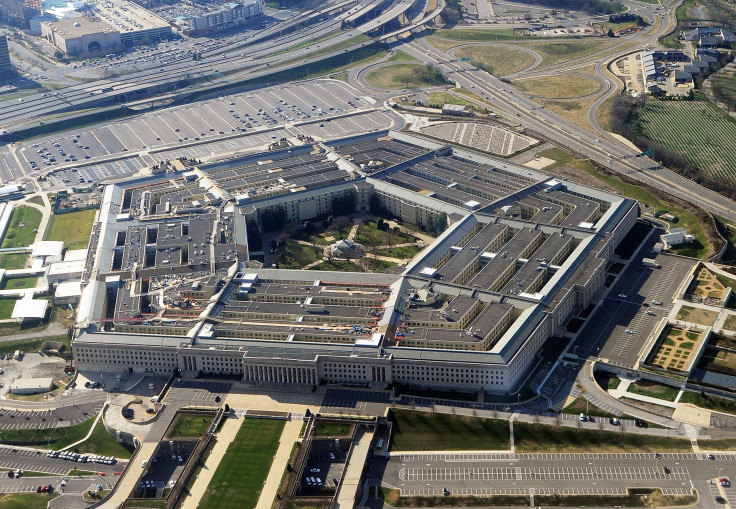DJI: US Army Won't Say Why It Banned Our Drones, Products

The U.S. Army ordered units to halt the use of DJI drones, it was revealed last week, but officials still won’t say why it banned the company’s products.
DJI told International Business Times it reached out to officials about the direction to discontinue the use of its drones, but the U.S. army did not respond to them.
Read: Inmate In South Carolina Prison Escapes Using Tools Dropped Off By Drone, Cell Phone
“The US Army has not explained why it suddenly banned the use of DJI drones and components, what ‘cyber vulnerabilities’ it is concerned about, or whether it has also excluded drones made by other manufacturers,” DJI said.
In a letter obtained by sUAS News, the U.S. Army Research Lab and U.S. Navy found there were operational risks associated with DJI products. The memo cited a classified report, “DJI UAS Technology Threat and User Vulnerabilities,” and a U.S. Navy memo, “Operational Risks with Regards to DJI Family of Products.” Both references were dated May 2017, which suggests officials have been dealing with the issue for some time.
Lieutenant General Joseph Anderson said in the letter:
"DJI Unmanned Aircraft Systems [UAS] products are the most widely used non-program of record commercial off-the-shelf UAS employed by the Army. The Army Aviation Engineering Directorate has issued over 300 separate Airworthiness Releases for DJI products in support of multiple organizations with a variety of mission sets. Due to increased awareness of cyber vulnerabilities associated with DJI products, it is directed that the US Army halt use of all DJI products."
The memo said DJI products, including all of the company’s unmanned aerial vehicles (UAV), should not be used anymore. The rule also applies to other items from the company, including flight computers, cameras, radios, batteries, speed controllers, GPS units, handheld control stations, and devices with DJI software applications installed. The U.S. Army also directed members to uninstall all DJI applications, remove battery and storage media from devices and to secure all equipment.
Read: UK Rules Require Owners To Register Their Drones And Take Safety Tests
“We can confirm that guidance was issued,” the U.S. Army told International Business Times on Tuesday, “however, we are currently reviewing the guidance and cannot comment further at this time.”
DJI was initially surprised when hearing about the order and said it had reached out to officials about the “cyber vulnerabilities” referenced in the letter. However, the U.S. army did not get back to them.
The company continued to stand its ground and said it “makes civilian drones for peaceful purposes” and not for military purposes.
DJI's statement to IBT:
“They are built for personal and professional use, and are not designed for military uses or constructed to military specifications. We do not market our products for military customers, and if military members choose to buy and use our products as the best way to accomplish their tasks, we have no way of knowing who they are or what they do with them.
[...] Even in highly sensitive applications involving critical infrastructure, customers use DJI products with confidence that they can accomplish their tasks. DJI has worked hard to earn our reputation as the drone industry’s leading innovator, and we will continue to provide solutions that our customers can depend on. If any of our customers have questions or concerns about DJI’s technology, we ask them to contact us directly so we can work to address them.”
Last year, the National Oceanic and Atmospheric Administration conducted a study to see if any data collected by the DJI S-1000 drone would be transmitted to the internet while up in the air, or during transfer of data to computers for post-processing, according to the Verge. The agency found no threats for data leakage in the aircraft.
“There was no evidence whatsoever of any attempt by any software to transfer any data from the aircraft,” the report said.
However, there have been some cybersecurity concerns regarding drones, as some hackers attempted to break into DJI's Go app and firmware. Others have expressed privacy concerns regarding data collection, as reports claimed DJI shared information with Chinese authorities, a claim the company has disputed.
“We want to emphasize that DJI does not routinely share customer information or drone video with Chinese authorities — or any authorities,” the company clarified last year.
© Copyright IBTimes 2024. All rights reserved.





















